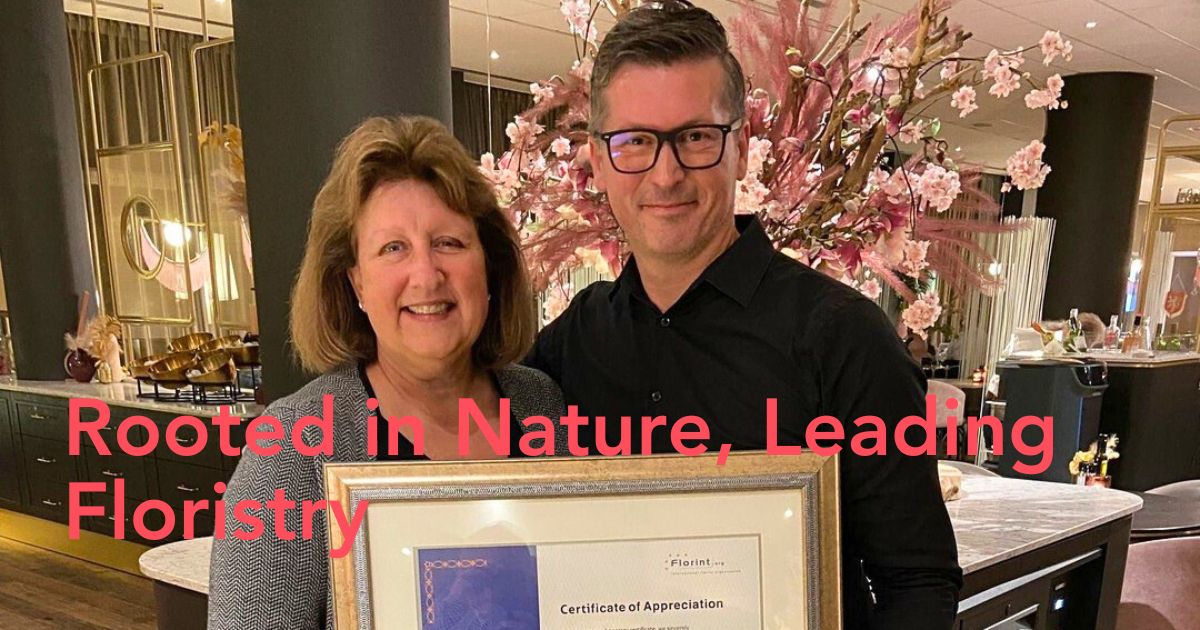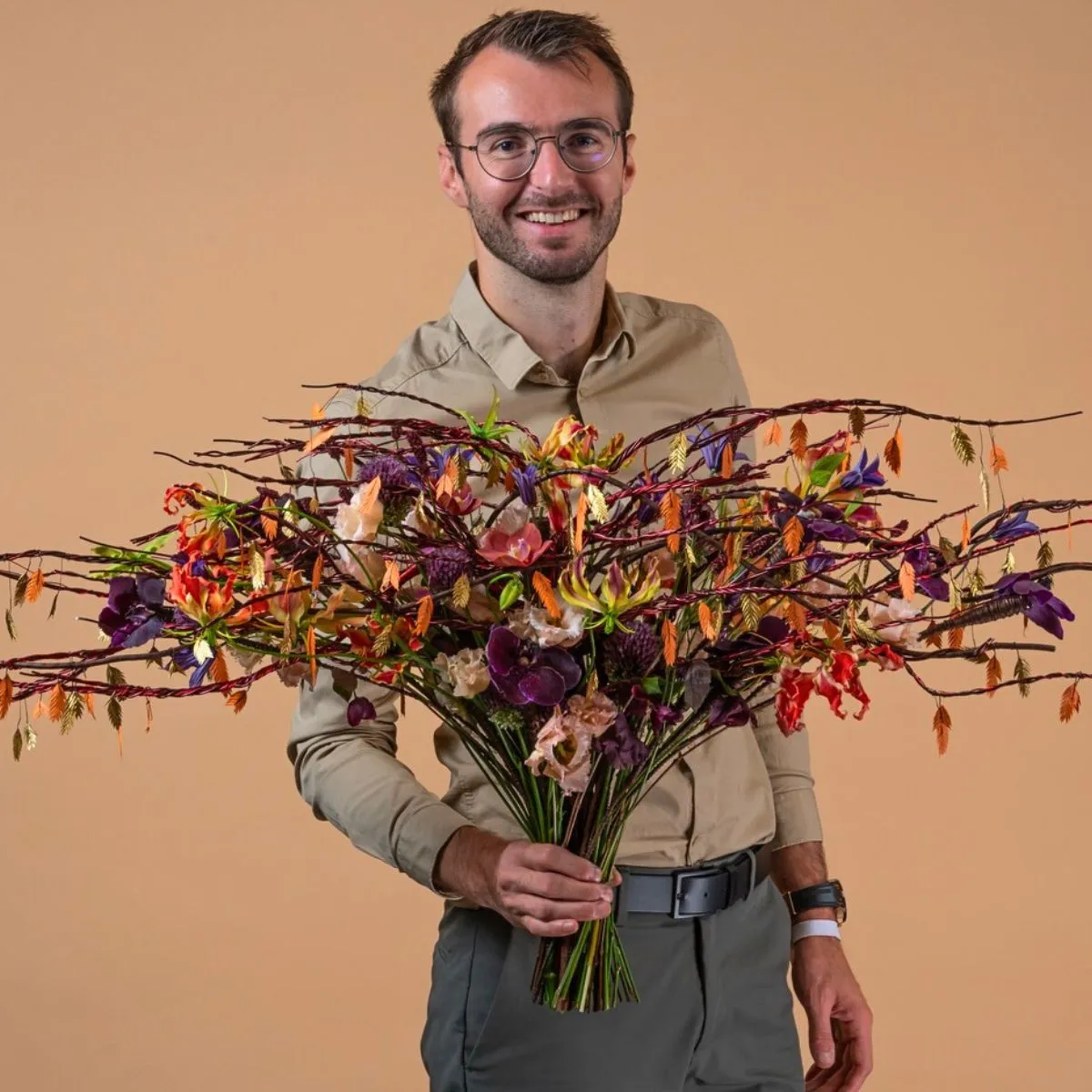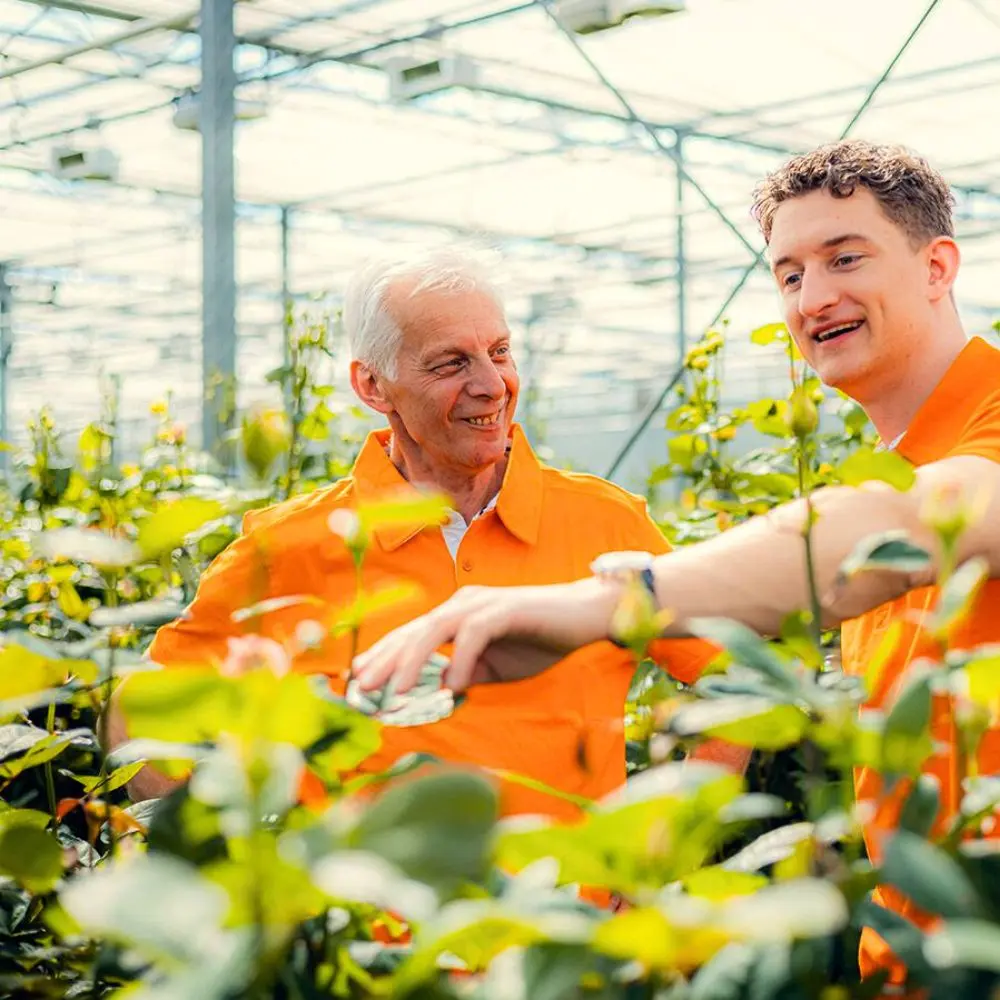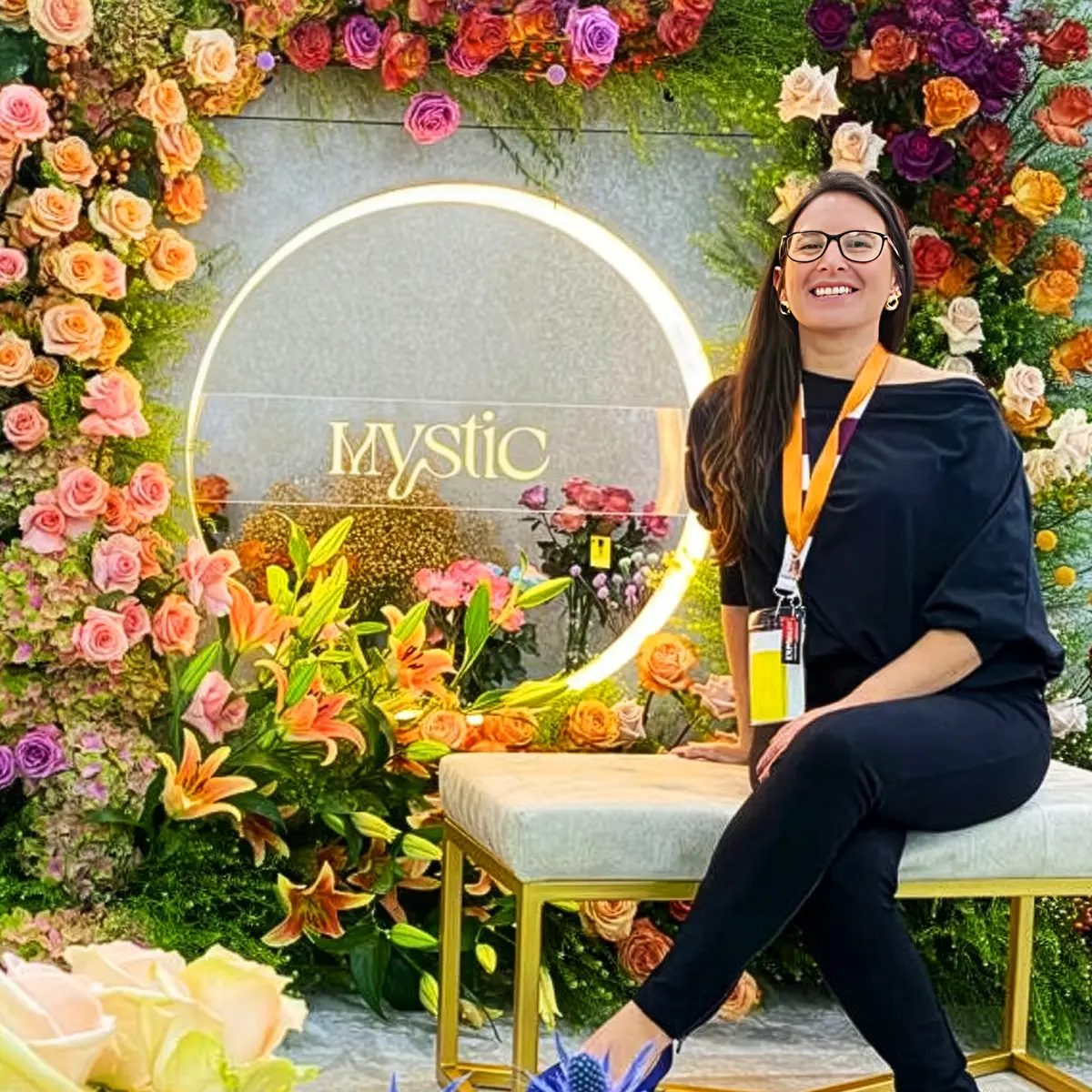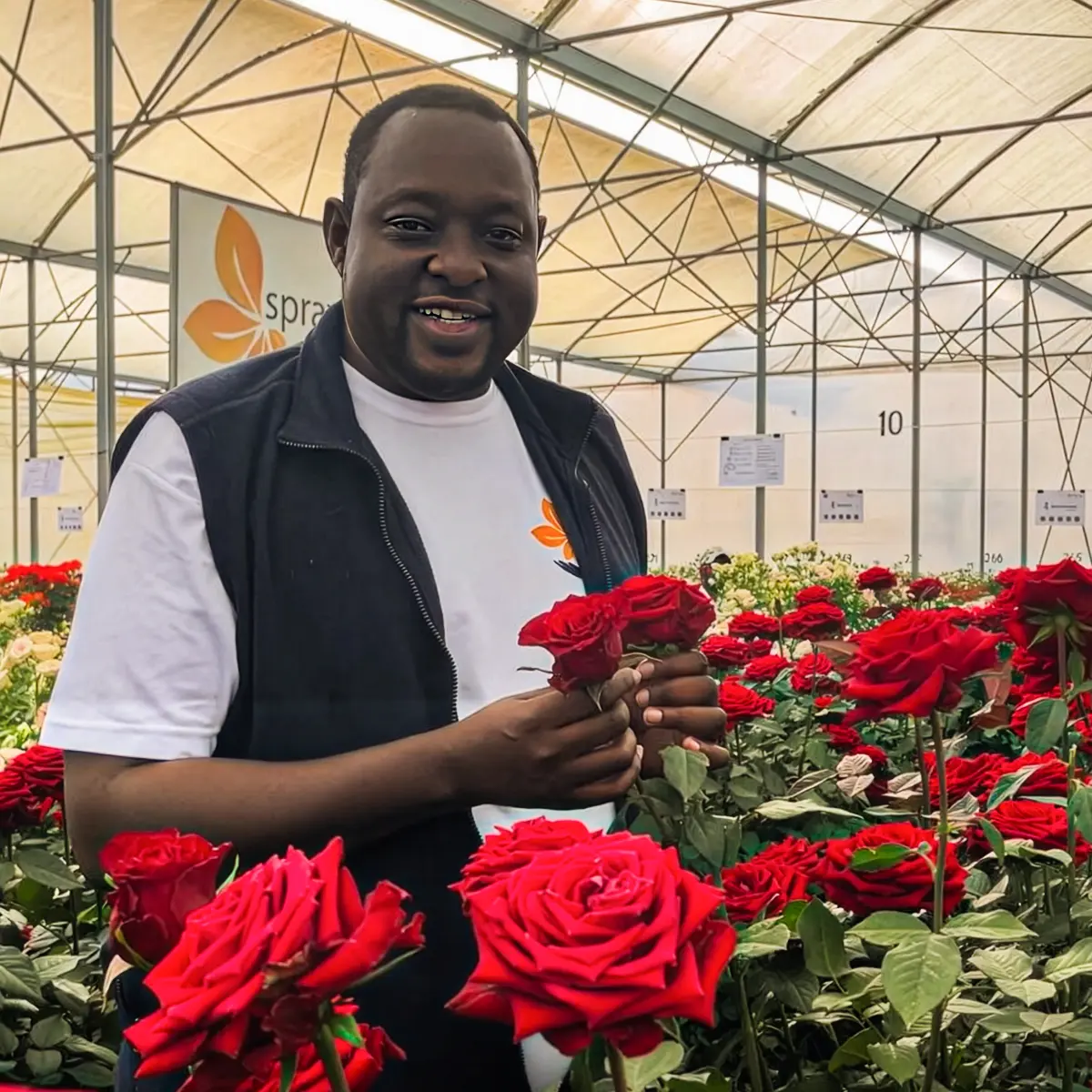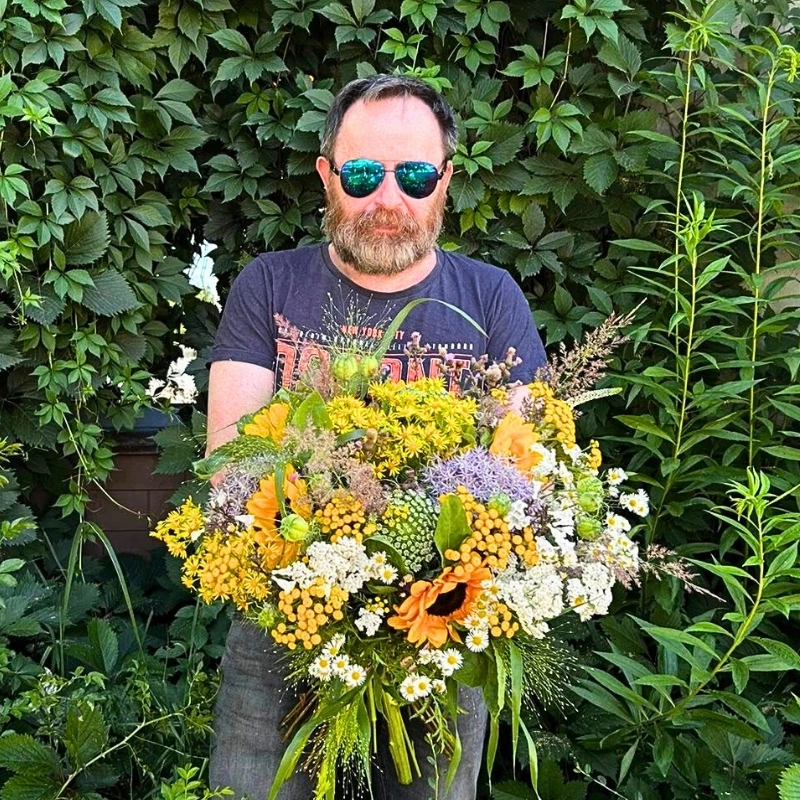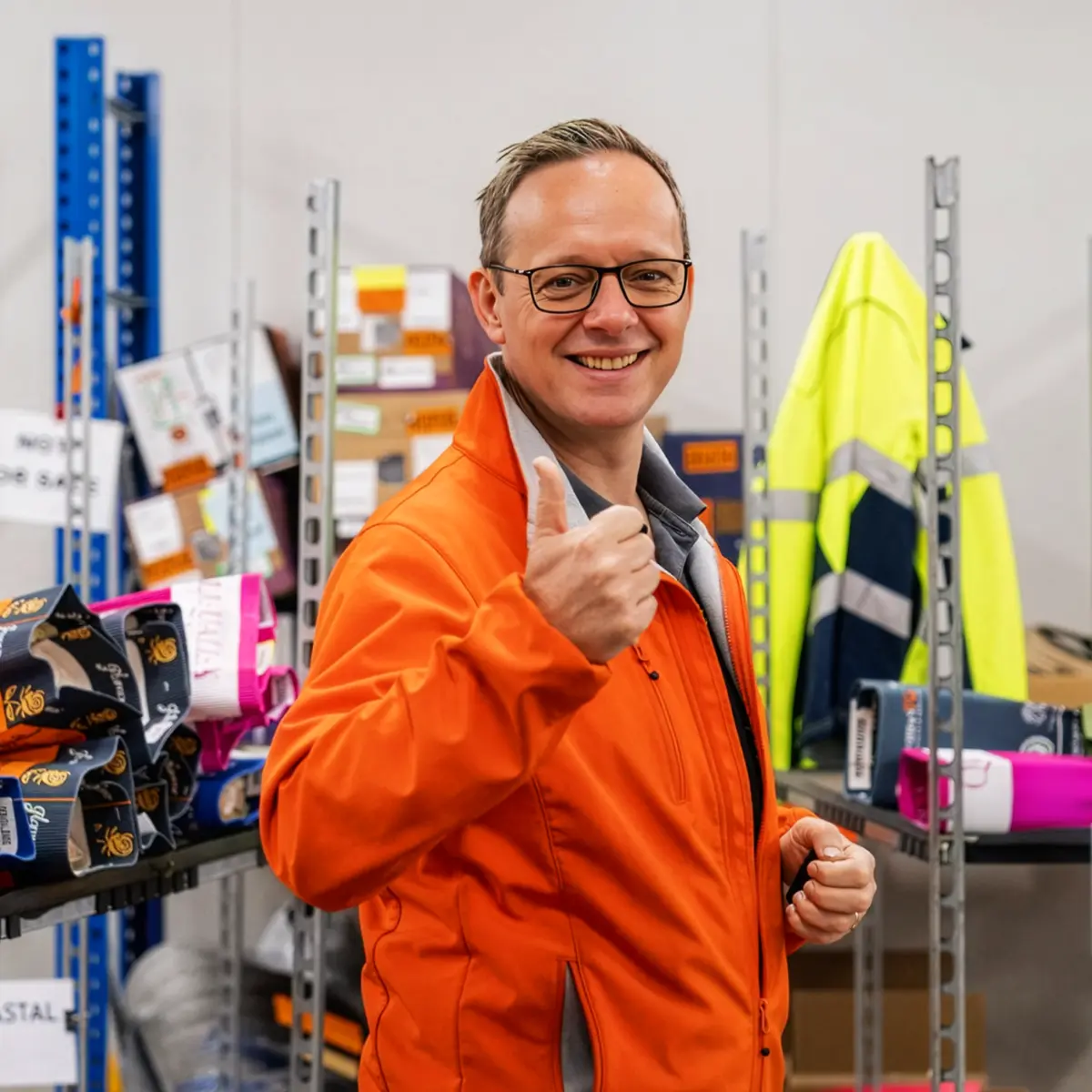Simon Ogrizek is a name that resonates across the global floristry landscape—not just for his impressive credentials, but for the heartfelt philosophy that guides his every step. With roots deeply planted in nature from early childhood, Simon has spent decades shaping the world of floral design, horticulture, and education. As President of Florint and the Slovenian Florist Association, an international floral judge, lecturer, and advocate for sustainable practices, his work reflects a rare combination of technical mastery, human insight, and deep respect for the natural world.
On the 10 questions this week, Simon shares his journey, inspirations, and convictions with honesty and emotion. From his love for peonies to his tireless commitment to education and sustainability, every answer offers a glimpse into a life shaped by flowers, people, and a profound sense of purpose.
Question 1
For those who don’t know you, who are you, and what do you do?
"My name is Simon Ogrizek, born in 1972, and I’m a proud father of two sons. From a young age, I was immersed in nature, growing up on a large family estate where flora and fauna were part of my everyday life. My grandmother and godmother instilled in me a deep respect for nature, laying the foundation for my career in horticulture. I began my formal journey in floristry and horticulture in 1988 when I joined the Secondary School for Gardening Technology, Floristics, and Landscaping in Celje, graduating in 1991. I went on to earn a degree in Agronomy with a focus on ornamental plants from the University of Ljubljana in 1995, and later, in 2006, completed a second degree in Horticulture from the same university.
For nearly twenty-five years, I led a landscaping, floristry, and flower production company with an annual turnover of approximately €2.5 million. Since 2018, I’ve served as President of Florint – the International Florist Organization – after being a board member from 2011 to 2017. I’m also a certified international floral design judge and assessor, licensed by Floring since 2002, and have been part of its technical committee since 2006.
I’ve had the honor of chairing the technical committee at the Floristry World Cup in Berlin (2015), and leading the jury and technical teams at the World Cups in Philadelphia (2019) and Manchester (2023) as Florint’s official representative. In 2019, I established my own consultancy: Floral and Landscape Design Consulting Company. I’ve been President of the Slovenian Florist Association since 2007 and chair the Education Committee at the Chamber of Craft and Small Business of Slovenia.
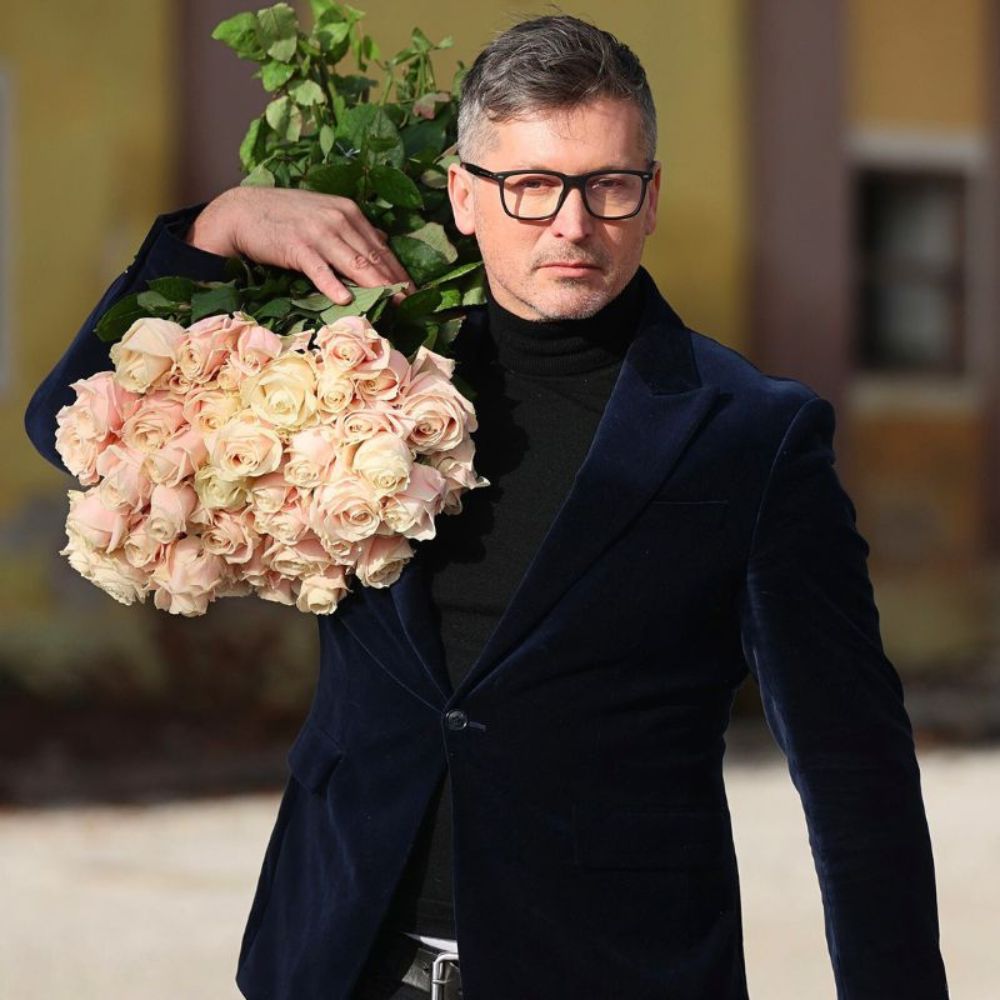
Education plays a vital role in my life. I believe knowledge should be shared, which is why I began teaching floristry, gardening, and landscaping at the high school level in Celje back in 2005. I also serve on several national education commissions for agriculture and am a governing board member of CEDEFOP – the European Centre for the Development of Vocational Education and Training. For over two decades, I’ve brought horticulture into people’s homes through more than 600 TV shows.
My life motto is simple: An open palm can give and receive. A closed one can do neither."
Question 2
What is so special about your job?
"In everything I do, I feel a deep responsibility to give my absolute best. My colleagues in China often say that 'feng shui is in my blood'—a reflection of my constant pursuit of balance and harmony in both design and life.
Whether I’m creating floral arrangements, designing landscapes, teaching, advocating for the rights of florists and gardeners, or simply admiring nature, I approach it all with passion, respect, and a strong sense of purpose. To me, it’s a moral obligation to honor the work and the natural world that inspires it."
Question 3
Are there any specific challenges or obstacles you’ve faced at work, and how did you overcome them?
"Great question—and I think my answer won’t surprise you!
Working with plants is the most rewarding part of what I do. They are the kindest companions—quiet listeners, steady partners, and a constant source of inspiration. The biggest challenge, however, is often people. Over the years, I’ve spent a lot of time studying human psychology, which has helped me better understand those I work with and find the right way to communicate, especially when it's important for the success of a project or the growth of the industry.
That said, if I see that my efforts won’t lead to meaningful results or add value, I choose not to invest further energy. I prefer to focus on where real progress is possible."
.jpg?1751977409430)
Question 4
What are the threats in the industry, and if so, do you have any solutions for them?
"One of the biggest threats is the relentless pursuit of profit, which often comes at the expense of sustainability—and ultimately, the well-being of nature itself. While transport is often criticized, it's a smaller part of the carbon footprint compared to the production process, which isn’t always managed as responsibly as it should be. We must respect nature and the climate by growing flowers and plants where conditions are naturally favorable at specific times of the year.
Of course, production in protected environments is possible, but it should be done most sustainably. If that’s not feasible, then cultivation should shift to regions where it can be done more naturally and efficiently.
We also need to prioritize seasonal use of flowers and plants. And above all, wild nature remains our greatest source of materials and inspiration—but it must be respected and used in a way that causes no harm."
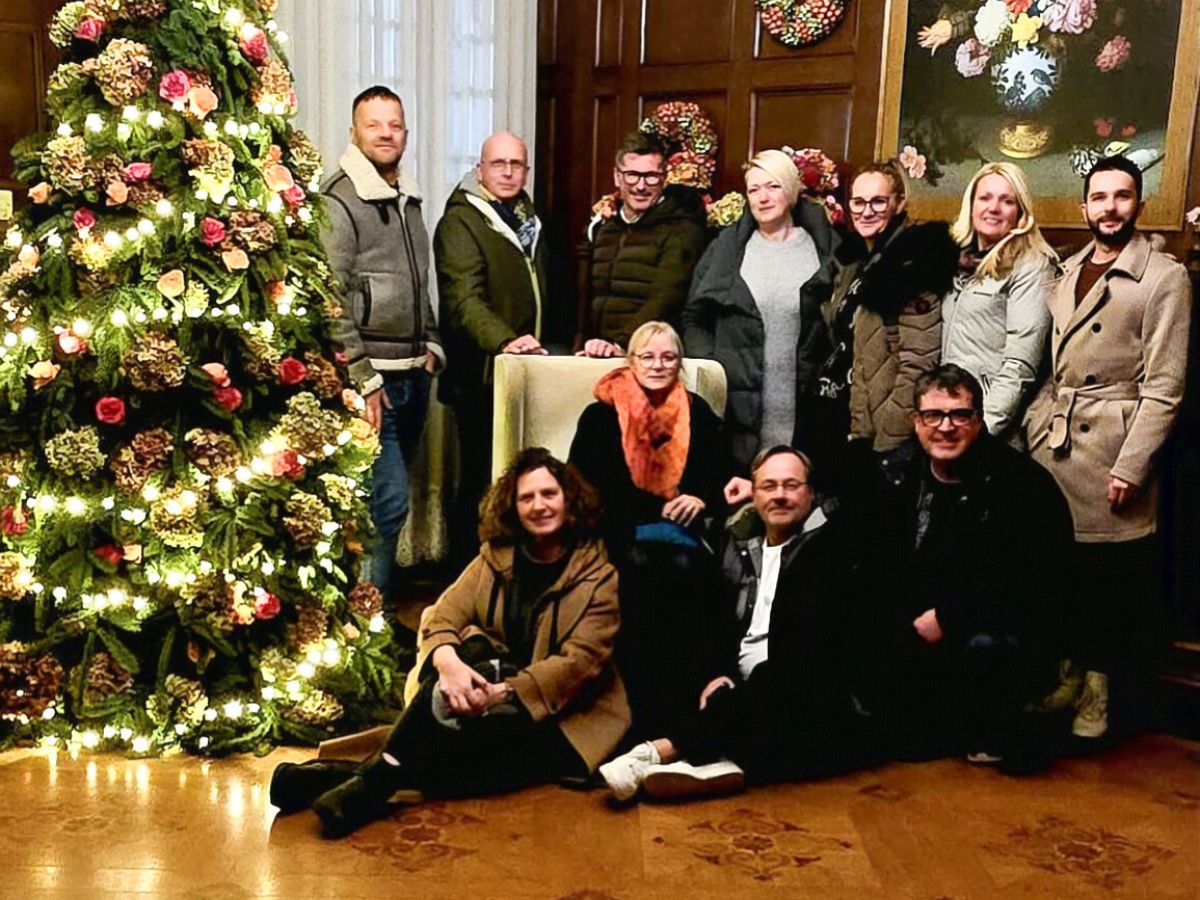
Question 5
How has technology, such as e-commerce platforms or digital marketing, affected your industry? What strategies have you employed to stay competitive?
"I’ve always believed that flowers and plants should be sold with a story. They’re not just products—they carry meaning, emotion, and connection. We need to see, feel, smell, and interact. Plants naturally bring people together; they’re a medium for reconnecting us to each other and nature.
Digitalization has its place—particularly in production and logistics—but the final step in the chain should remain personal. If we remove the human element entirely, we risk losing touch with nature. And with that comes a loss of respect and understanding."
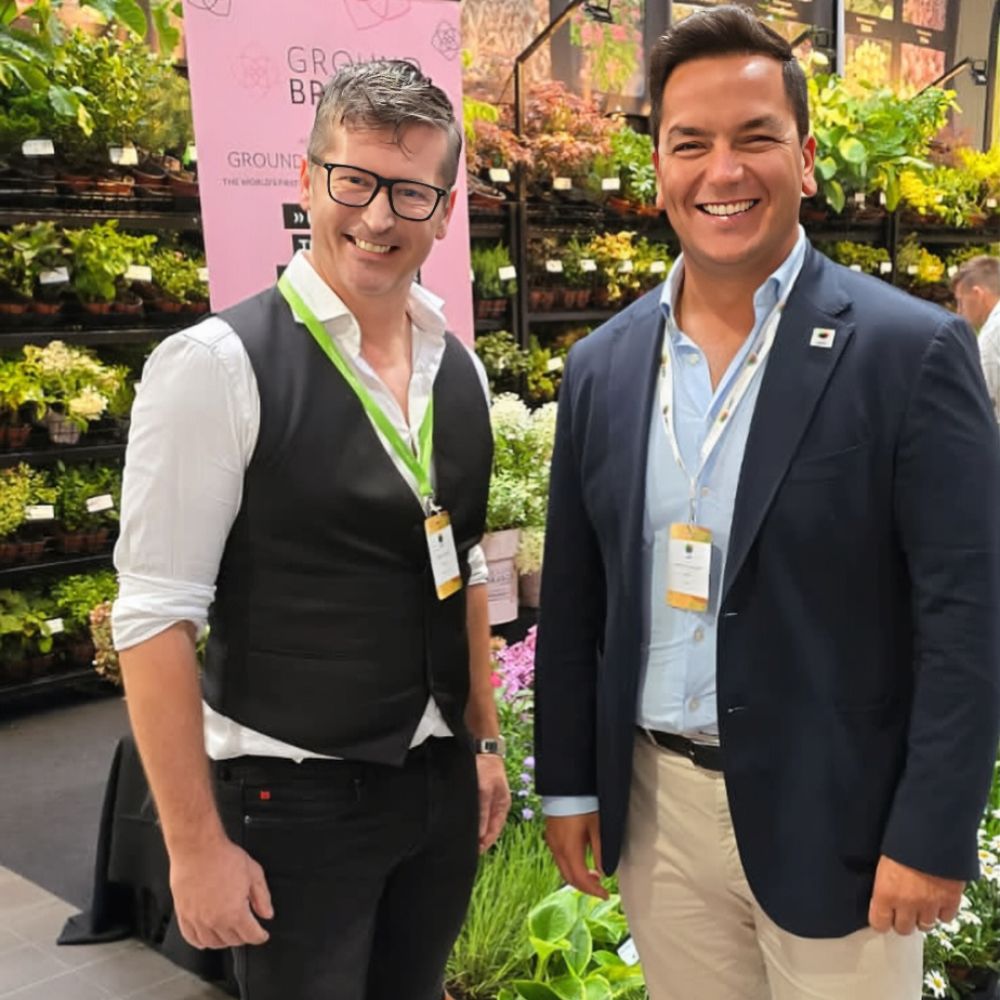
Question 6
Who (in or outside the floral industry) is an inspiring example to you? And Why?
"I know my answer may sound diplomatic, but I truly respect those who selflessly share their genuine knowledge and experiences, especially those who provide quality insight, not empty promises. Knowledge, when shared with integrity, can lead to incredible growth and innovation.
As for inspiration, nature itself is my greatest muse. It’s the ultimate source of everything we need to cultivate life and success. And if I had to name one person who inspires me, it’s someone whose words resonate deeply with me:
“We are all visitors to this time, this place. We are just passing through. Our purpose here is to observe, to learn, to grow, to love... and then we return home.”
I believe anyone reading these words will recognize the author within themselves."
Question 7
How do you handle stress or difficult moments in your life?
"Life can be unpredictable and full of challenges, but I rely on discipline, a positive mindset, and regular connection with nature to stay balanced. Sports also play a big role in keeping me centered and energized.
My life motto continues to guide me: “When the palm is open, it can give and receive—neither is possible when it’s closed.”
And above all, I remind myself of this simple truth: We are all visitors to this time and place—we’re just passing through."
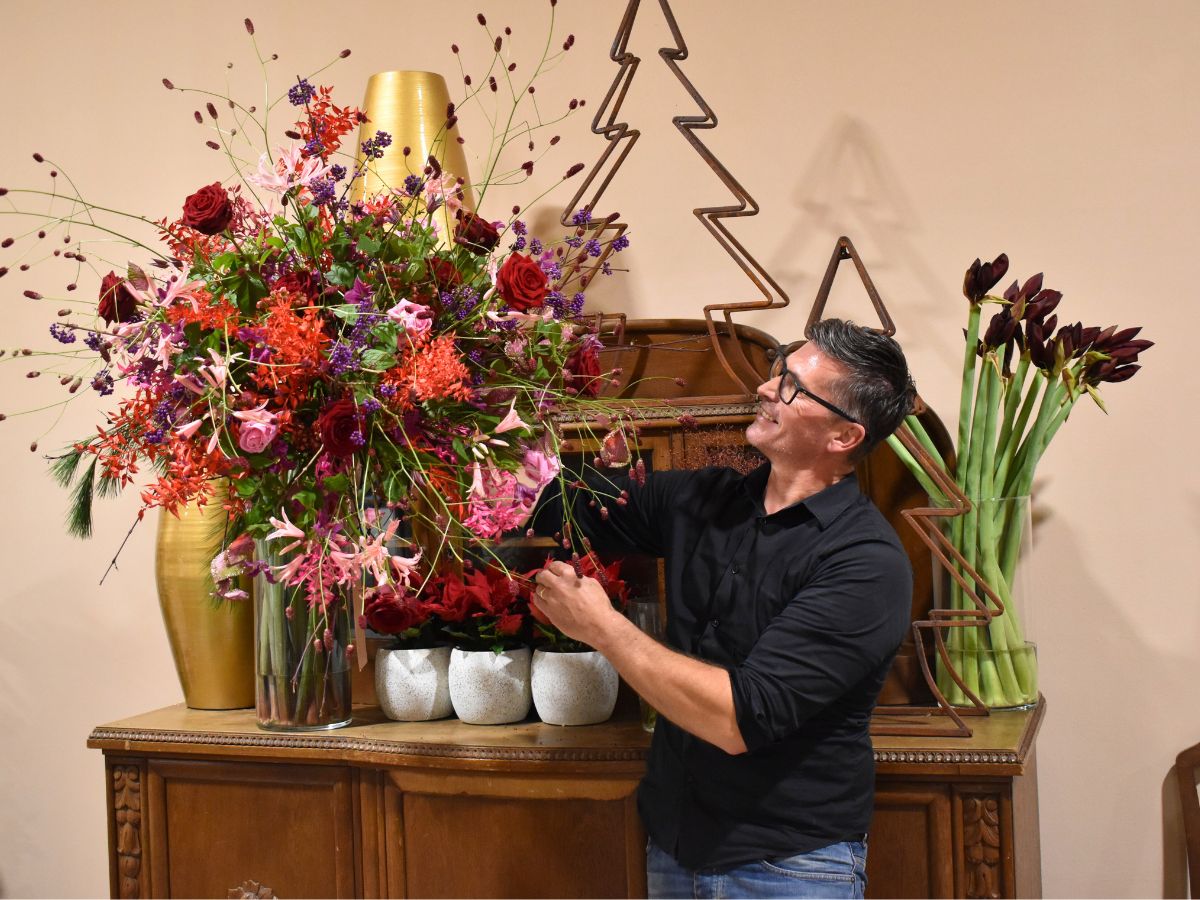
Question 8
What has been the best (floral or non-floral) news for you lately, or of the last year?
"Without a doubt, everything related to the Florint World Cup in The Hague. It represents one of the most significant developments in the field of floristry.
What excites me most is seeing how the entire global floristry community is eagerly anticipating this event. It’s a powerful reminder of how far we’ve come—and how much potential still lies ahead."
Question 9
Which is your favorite flower/plant, and why is it good for you?
"I should probably give the diplomatic answer and say, I love all plants and flowers—but I know you’re looking for something more specific!
For me, it’s peonies—potonike in my language. I’m drawn to their elegance, their layers upon layers of delicate texture, and a scent that takes me straight back to my grandmother’s garden. There’s something special about them in every season—their soft spring shoots, their striking blooms, and even the rich autumn colors of their leaves.
And if I had to choose just one variety? Brother Chuck—it holds a special place in my heart."
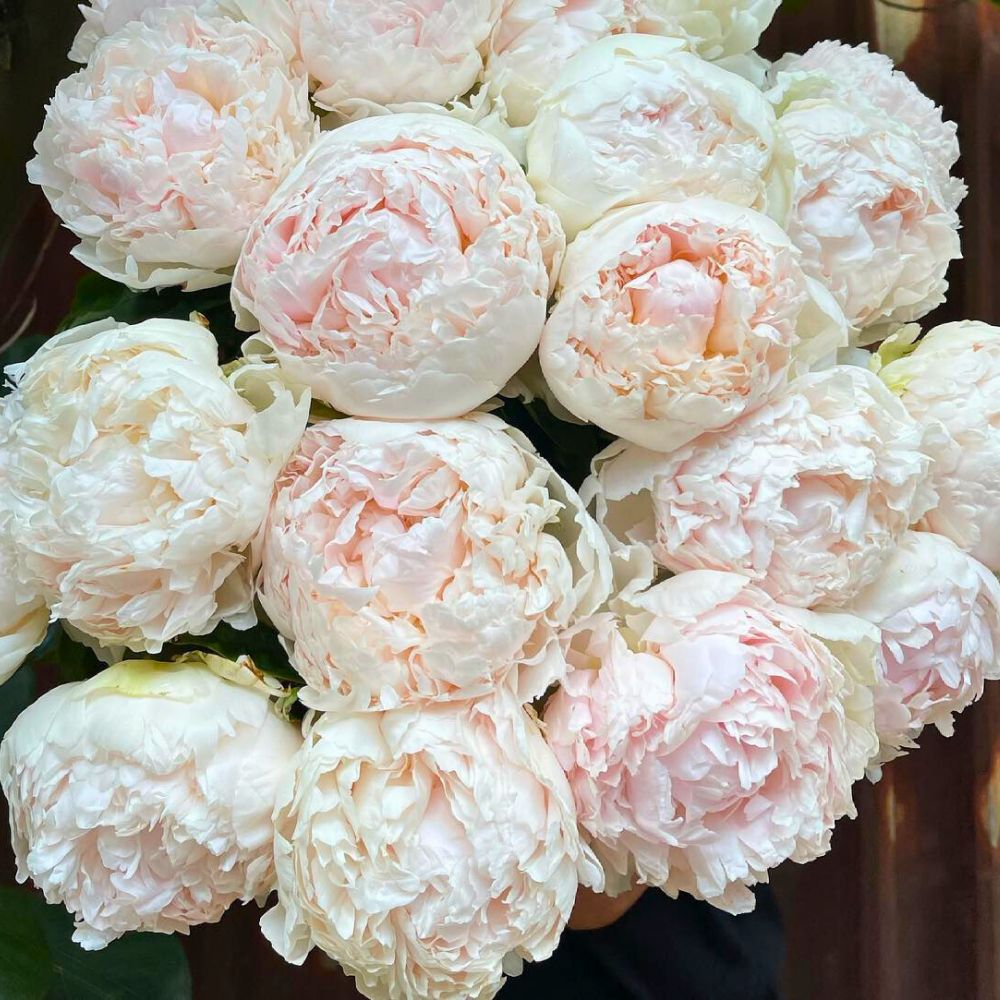
Question 10
What are you doing this weekend?
"In Portorož, on our Slovenian coast, the Melodies of the Sea and Sun Festival (Melodije morja in sonca) will take place. This cherished event began in 1978 in the town of Piran as a pop music competition. Over the years, it became known for launching popular hits and has continued to celebrate themes of summer, the sea, and warmth, both in music and spirit.
But what makes it truly special for me is the memory it holds. My late wife, Blanka, loved this festival deeply, and we attended together every year. To honor that tradition, I’ll be going this year with our dear friends Alenka and Zdene, who were always part of that circle and still remain close.
Writing this brings tears to my eyes. So, thank you for placing this question last."

All pictures and videos courtesy of Simon Ogrizek.

